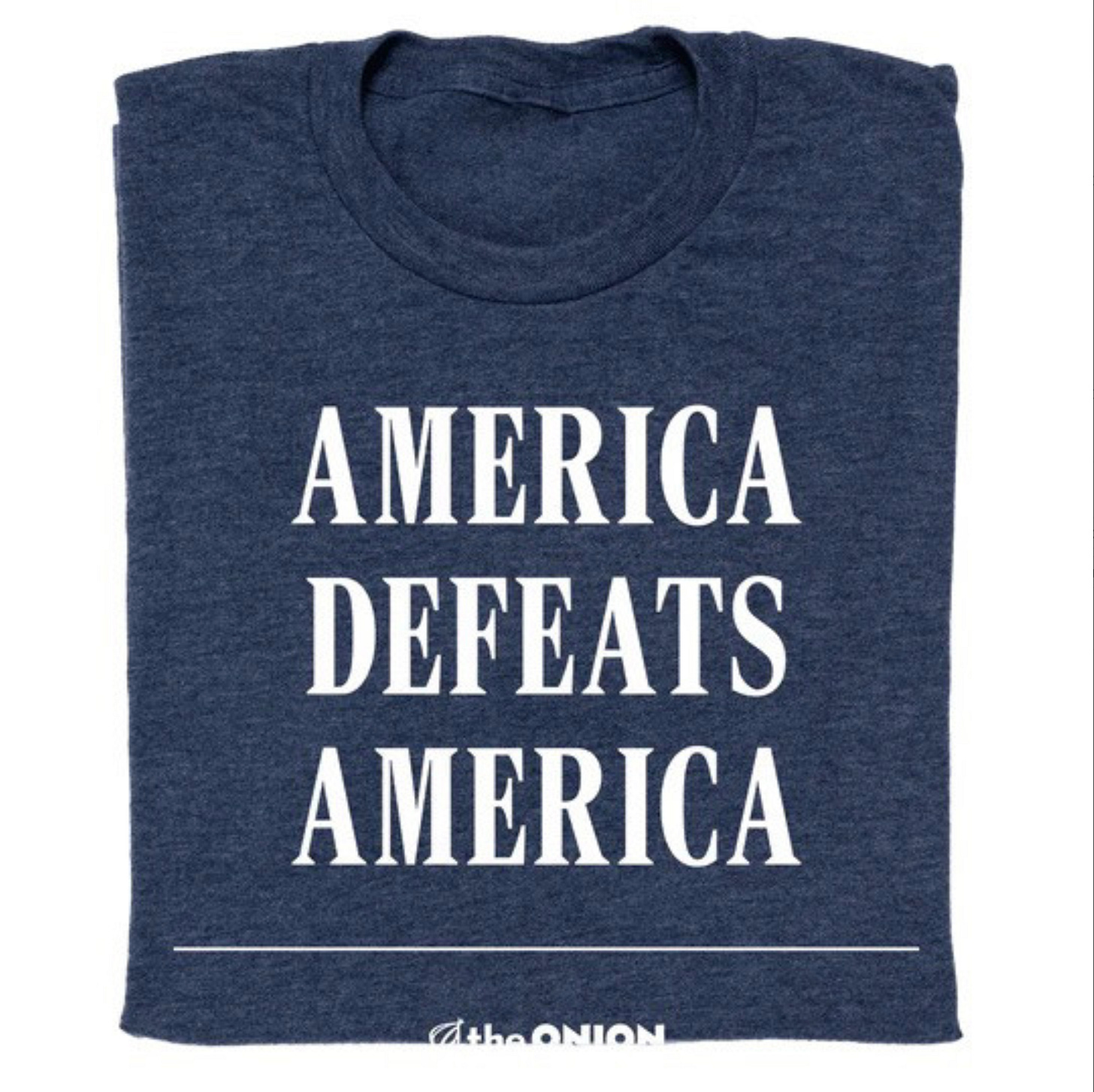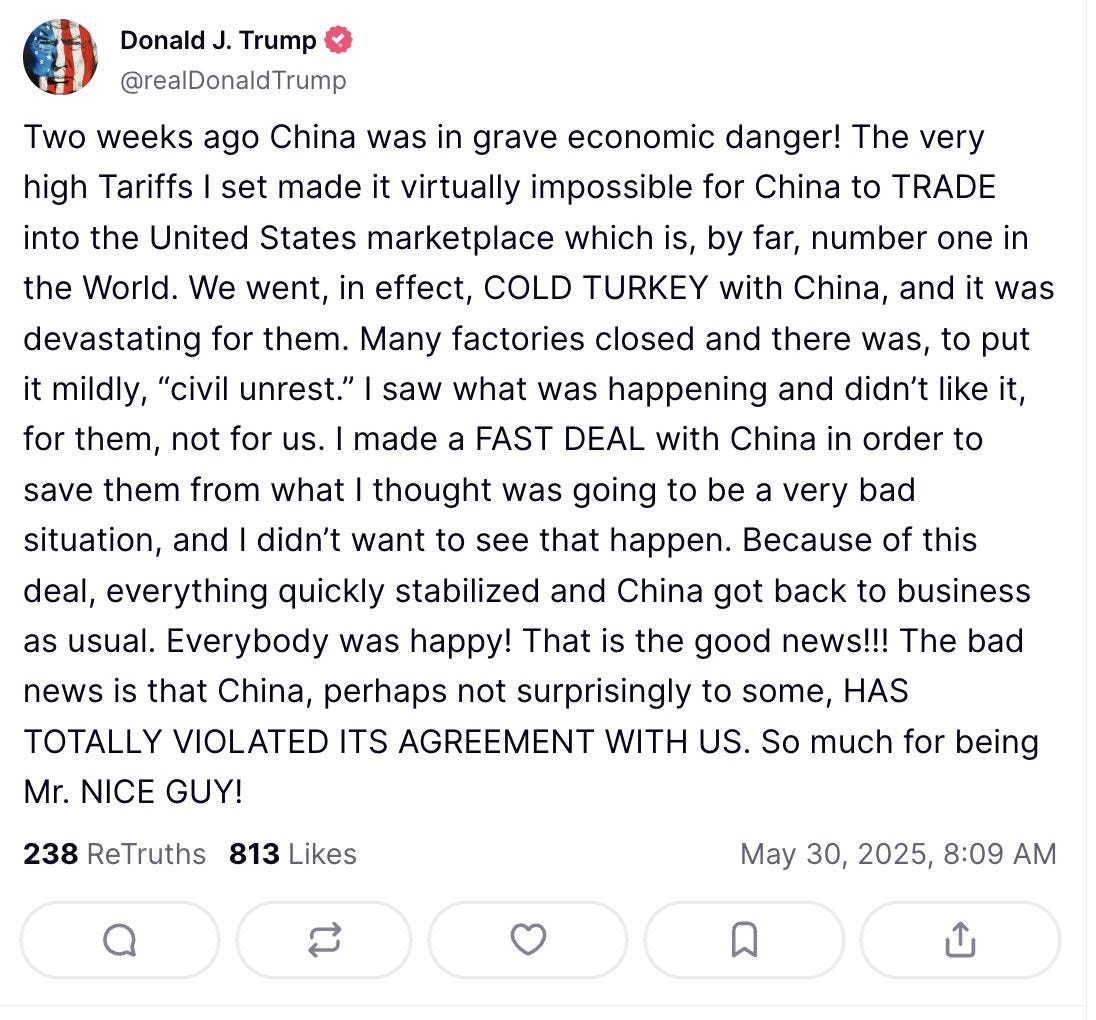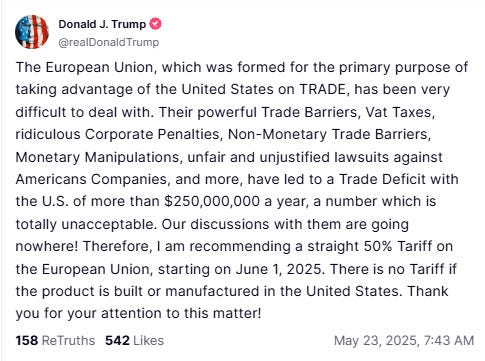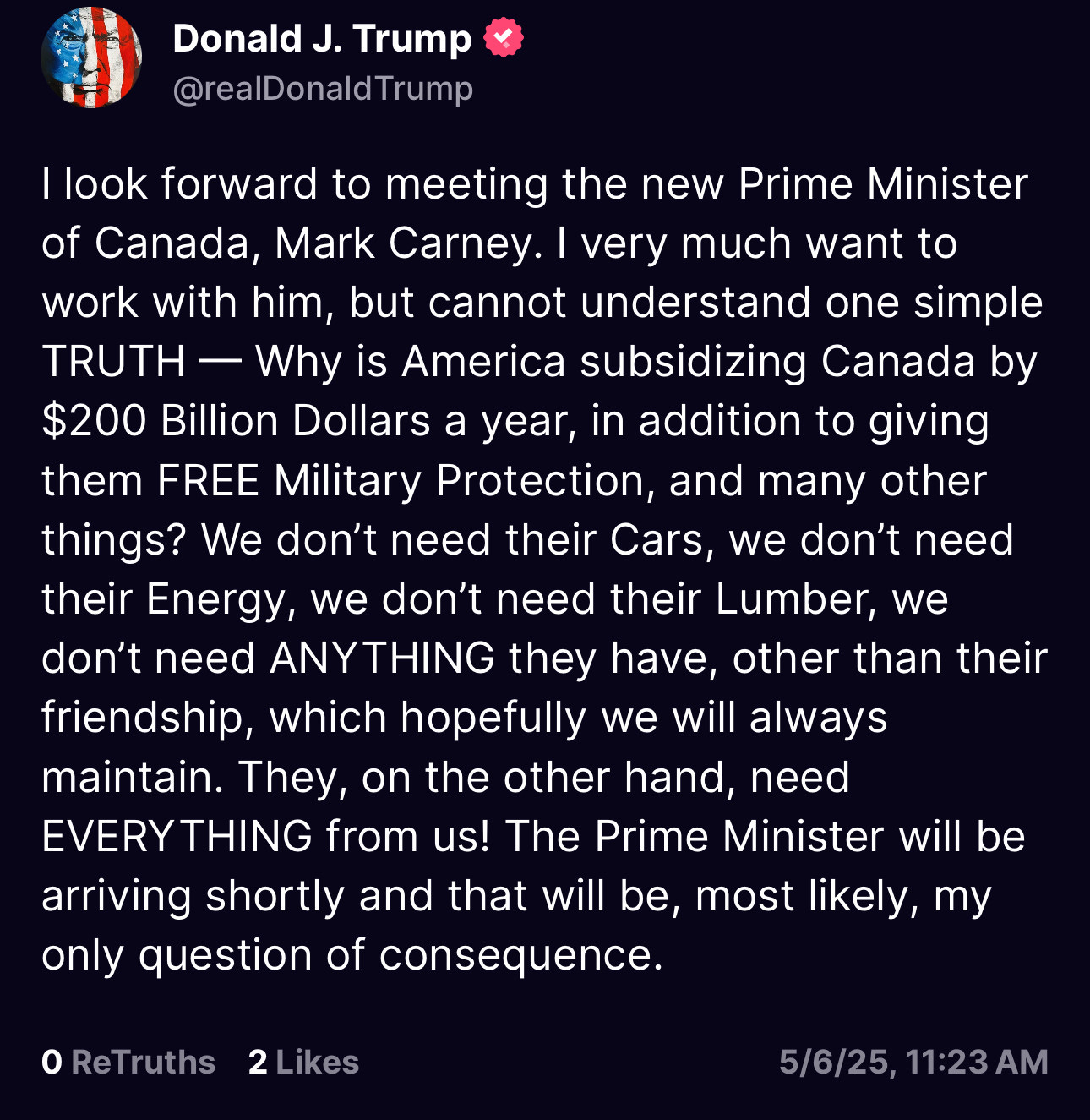No longer a shining city on a hill
How Trump's closing America's doors to the rest of the world makes us a weaker country
Sometimes, from the outside of the United States, one can see a bit more clearly what is happening here.
For two weeks traveling across France, I watched French, British, and other television news shows reporting on Donald Trump’s slow-but-sure closing of America’s doors to the world.
It all reminded me that what is happening here is not merely an economic and cultural disaster in the making; it’s a shocking and grotesque betrayal of almost everything that has made our country great.
It's a giant middle finger directed at the rest of the world.
First, there’s Trump’s chaotic and disastrous trade policies.
Closing doors to trade and attacking our closest allies for selling us products that we wish to buy will not only make us poorer, but it will make us look ignorant and petty.
How can anyone here or elsewhere read the following statements from our president and think anything other than that fools are running our government? What CEO of a large corporation would make multi-billion-dollar investments in a nation whose trade and fiscal policies are being made by a person whose mind works like this?
Here’s the hard truth: Little that Trump is doing in the trade arena will end well. It certainly will not bring manufacturing jobs roaring back, as he promises.
As Robert Z. Lawrence, a non-resident fellow at the Peterson Institute for International Economics, wrote last year in an essay, “No President Can Revive US Manufacturing Employment”:
[T]he decline of manufacturing as a share of total employment – from 30% in the 1970s to barely 8% today– reflects long-term structural forces such as automation, productivity gains, and a shift in demand from goods toward services (which happens naturally as economies develop).
There have been similar declines in other advanced and emerging-market economies, including those with long-standing manufacturing trade surpluses, such as Germany, Japan, Singapore, South Korea, and China. Such trends call into question Trump’s belief that a smaller trade deficit is the key to spurring more manufacturing employment.
Moreover, the employment share of manufacturing is declining in mature economies regardless of their overall industrial-policy approaches. The trend is apparent both in economies that have adopted free-market policies (Hong Kong, the United States, the United Kingdom, and Germany) and in those with interventionist policies (Japan, South Korea, and China). Again, such evidence casts doubt on the claim that neoliberal policies are to blame for lost manufacturing jobs, or that more interventionist industrial policies can significantly reverse the decline.
Nothing Trump is doing with tariffs is making our economy stronger.
And with his erratic pronouncements, he is clearly not enhancing our respect on the international stage.
Instead, our leader is viewed by the rest of the world as an emotionally needy laughingstock.
As destructive as Trump’s trade policies will prove to be, what he’s doing with immigration will prove even more harmful because it embodies the racist rot at the core of MAGA and the Trump White House.
Telling the world we no longer believe the words emblazoned on the Statue of Liberty—"Give me your tired, your poor/ Your huddled masses yearning to breathe free"—makes us weaker and betrays the founding principles of a great nation created by immigrants.
We are a melting pot and, except for our native population, a nation of immigrants or their descendants. Our greatness is not just in what we’ve built or earned, but also in what we’ve (imperfectly) defended: freedom and the inherent dignity of every person.
As much as his founding generation and succeeding ones often failed to live up to it, Thomas Jefferson’s near-sacred sentiment—"We hold these truths to be self-evident, that all men are created equal, that they are endowed by their Creator with certain unalienable rights, that among these are life, liberty, and the pursuit of happiness”—is our founding principle.
Trump desecrates and undermines those words by closing our doors to the oppressed, to international scholars, to almost anyone outside our borders who made the mistake of believing in the promise of America that no less a believer in freedom than Ronald Reagan once articulated so well.
In June 1952, the future Republican president traveled to Fulton, Missouri, near St. Louis, where he delivered a commencement address to the graduates of William Woods College, a small Disciples of Christ school for women. Reagan gave an eloquent, unapologetic defense of American patriotism and immigration.
[I]t has been said that America is less of a place than an idea, and if it is an idea, and I believe that to be true, it is an idea that has been deep in the souls of man ever since man started his long trail from the swamps. It is nothing but the inherent love of freedom in each one of us, and the great ideological struggle that we find ourselves engaged in today is not a new struggle. It’s the same old battle. We met it under the name of Hitlerism; we met it under the name of Kaiserism; and we have met it back through the ages in the name of every conqueror that has ever set up on a course of establishing his rule over mankind.
It is simply the idea, the basis of this country and of our religion, the idea of the dignity of man, the idea that deep within the heart of each one of us is something so God-like and precious that no individual or group has a right to impose his or its will upon the people, that no group can decide for the people what is good for the people so well as they can decide for themselves.
I, in my own mind, have thought of America has a place in the divine scheme of things that was set aside as a promised land. It was set here and the price of admission was very simple; the means of selection was very simple as to how this land should be populated: Any place in the world and any person from those places; any person with the courage, with the desire to tear up the roots, to strive for freedom, to attempt and dare to live in a strange and foreign place, to travel half across the world, was welcome here.
And they have brought with them to the bloodstream that has become America that precious courage, the courage that they, and they alone in their community, in their nation, in their family, had in the first place, to his land, the unknown, to strive for something better for themselves and for their children and their children’s children. I believe that God in shedding his grace on this country has always in this divine scheme of things kept an eye on our land and guided it as a promised land for these people.
Here’s another truth that Reagan understood and embraced for the rest of his life: Immigration makes us stronger.
“Our nation is a nation of immigrants,” President Reagan said in 1981. “More than any other country, our strength comes from our own immigrant heritage and our capacity to welcome those from other lands.”
Like leaders in both major parties, Reagan also believed in controlling our borders and prioritizing citizenship for those who came here legally. But Reagan never vilified immigrants, and he always praised immigration. He did so because he believed that America was a “shining city on a hill.”
By allowing Trump to defile our founding principles with his attacks on legal immigration, today’s GOP betrays our country and transforms it into something ugly and quite un-American.
Reagan’s shining city on a hill has dimmed into a fearful tribe huddled in a cave of nativism.
But it’s not just our founding principles that Trump threatens.
By deporting and rejecting legal immigrants, parents of infant citizens, Green Card holders, distinguished scholars and scientists, students, business owners and entrepreneurs, and the politically oppressed, Trump makes us all less safe.
By telling the rest of the world that we are closing our doors to them, Trump signals that we do not need allies. He says, in effect, that America can go it alone.
No man is an island, and no country will long thrive that provokes the enmity of the rest of the world. No person or nation can prosper for long without honest, mutually beneficial relationships. By creating so many enemies, including among our closest and most trustworthy neighbors, Trump jeopardizes our future.
The Canadian people are worried that their southern neighbor might cause them harm, might even invade them. Not to minimize the risk they face from our mad king, but Canada is now the stronger nation. And, even with the threats from Trump, it’s more secure than the United States.
That’s because Canada has not sacrificed its alliances and its reputation on the altars of racism, white Christian nationalism, and nativism.
By cultivating relationships, by treating its allies with respect, and by recognizing the enormous benefits of its diversity, Canada—and every other nation like it—is stronger and has a far brighter future than the United States under Trump.
Trump is not just our president. He and his racist, un-American ideology constitute a deadly, infectious disease threatening to destroy not just our democratic form of government but our nation itself.








Ok about the shining city on the hill, but Reagan’s trickle down economics, deregulating, giving tax breaks to the wealthy and corporations while cutting spending to the poor, is the foundation of Trump’s big beautiful bill. Not only does supply side economics not work to promote healthy economic growth in the long term, it has greatly contributed to the crisis of wealth inequality we have in our country.
Something that’s being missed in the discussion about foreign students, I believe, is that American students benefit from being exposed to the perspectives of students with different backgrounds and life experiences. Students learn from each other as well as from their instructors.